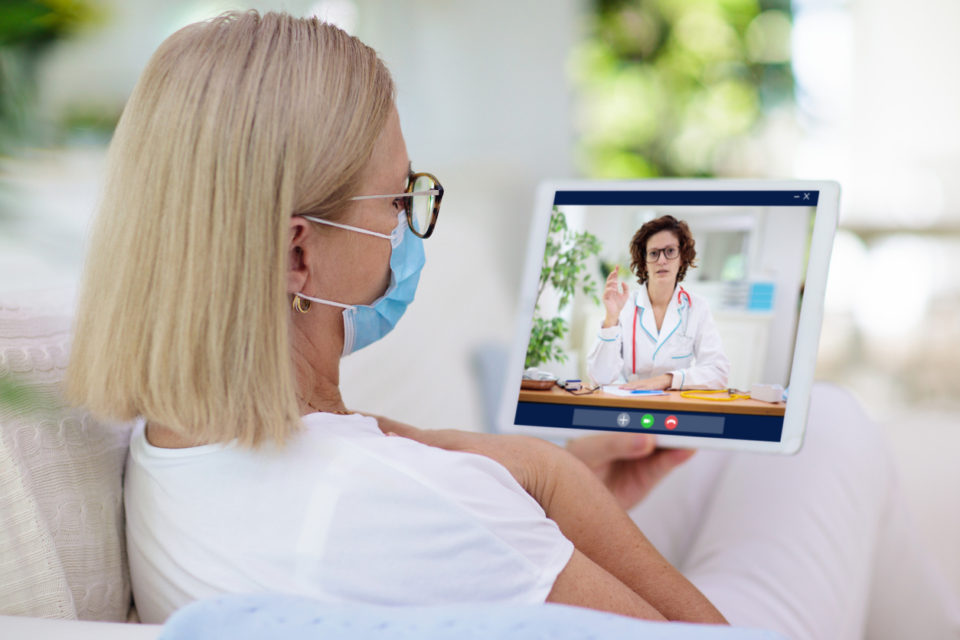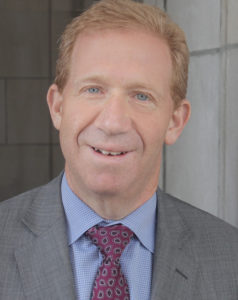Dr. Mitchell Roslin: Telemedicine is “a thing!”

Dr. Mitchell Roslin: Telemedicine is “a thing!” The COVID lockdown has pushed telecommuting a decade into the future and has made telemedicine “a thing” in record time according to Dr. Mitchell Roslin, Director of Bariatric Surgery at Northern Westchester Hospital. According to Dr. Roslin, during the peak of the Coronavirus, “telemedicine enabled Northern Westchester Hospital to provide continuity of care for existing non-COVID patients and to start new non-COVID patients on a treatment path.”
 But the public’s current appetite for all things contactless is not likely to subside he says, because telemedicine can eliminate so much travel and waiting room time for the patient. That reduces time away from work. Here he emphasizes that telemedicine is not asking for medical advice over the phone or via email. He defines telemedicine as “an encounter between a patient and doctor through a confidential digital platform, a virtual visit that carries with it the same responsibilities and implications for the doctor that exist during a face-to-face encounter in that physician’s office.”
But the public’s current appetite for all things contactless is not likely to subside he says, because telemedicine can eliminate so much travel and waiting room time for the patient. That reduces time away from work. Here he emphasizes that telemedicine is not asking for medical advice over the phone or via email. He defines telemedicine as “an encounter between a patient and doctor through a confidential digital platform, a virtual visit that carries with it the same responsibilities and implications for the doctor that exist during a face-to-face encounter in that physician’s office.”
It can also help a doctor gain a lot more medical information than a phone call or email exchange, he explains. “First it’s easy to show the doctor where you are experiencing pain or discomfort on video. The doctor might ask you to self examine by coughing or bending in certain positions and describe what you feel.”
“If you have abdominal pain, your doctor decides if this is a surgical or a medical condition like gastroenteritis, also assessing if it’s safe enough to observe you again in a few hours and see if you’re doing better. Or the doctor can direct you to a higher level of care, such as an emergency room with the capability to obtain rapid blood work and radiologic imaging.”
Although existing technologies that can extend telemedicine’s reach may not be routinely used now, Dr. Roslin sees new applications coming soon. “The type of information that can be gathered remotely is expanding rapidly. Today, virtual technology can magnify skin abnormalities. Devices that record weight, blood pressure, and oxygen level can be given to patients who need complex care requiring close observation, and the data can be transmitted to the doctor.”
Dr. Roslin’s views on telemedicine are, of course, are a reflection of its natural fit for his practice as a bariatric surgeon which requires frequent consultations before and after bariatric surgery where a face to face meeting is not necessary. Not all health care practices are as ideally suited to virtual visits. So don’t expect to be dialing up a ZOOM session for a detailed medical exam or for life-threatening situations. And while Dr. Roslin says it will never replace in-person practice, he thinks “your future care will probably be a combo” of in-person and tele-medical care. Here’s how he sees the things unfolding.
Telemedicine is a good fit for these types of medical care:
- Routine follow-up visits.
- When frequent counseling, not a physical exam, is what the patient needs.
- Monitoring chronic conditions. This includes high blood pressure and diabetes, when the patient is supported in managing the condition through regular discussions of diet. Similarly, a patient with congestive heart failure needs ongoing support for limiting salt intake.
- Monitoring a course of medication.
- Whenever a quick interaction is all that’s needed. Take a patient with a rheumatic disease causing inflammation of the joints. After prescribing medication, the doctor only needs to check on flare-ups.
- Preventative medicine: For example, preventative cardiology is mainly counseling.
- Patients can be effectively screened so the physician can determine their exact needs.
Telemedicine is not a good fit for these types of care.
- Obviously, a doctor can’t use telemedicine to feel a joint, listen to the heart, or do procedures.
- Emergency care for potentially life-threatening conditions like chest pain or shortness of breath.
- Acute injuries that require x-ray or other rapid imaging.
- Traumatic accidents and lacerations.
- By Dr. Mitchell Roslin, FACS, FASMBS, Director of the Bariatric Surgery Program at Northern Westchester Hospital.
More from Dr. Roslin on What To Do

















